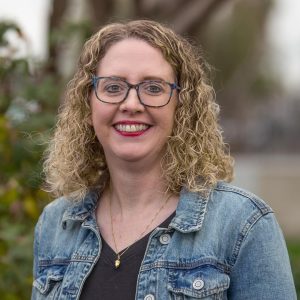Editor’s Note: This article was originally published in the winter 2019 issue of The Gateway magazine as “Ministry Through Competition,” but I recently saw an update on social media from the subject of this story: Cornell Swain. He commemorated ten years of ministry service at San Quentin Rehabilitation Center with a short story about about a Sunday service in the prison’s chapel with more than 100 men in attendance. I thought this would be a good opportunity to resurface this story on an often forgotten mission field.
Each week, Prison Sports Ministry provides the inmates of San Quentin State Prison the opportunity to participate in competitive sports, with a goal of reaching them with the gospel. As leader of one of the eight basketball teams that enter the prison week-to-week, Gateway Seminary alumnus Cornell Swain plays a vital role in this ministry .
Swain gathers players from local churches and the community for two key reasons: to prepare the prisoners for their high-profile opponents at the end of the season and to support the growing church inside the prison gates. In 2017 and 2018, the San Quentin Warriors, one of the prison’s more talented basketball teams, beat the Golden State Warriors’ front office squad. These games are well-attended in the prison and completely organized. The prison teams have coaches, and inmates serve as referees. Inmates also cover the games for San Quentin News, a monthly publication with a circulation that includes all 35 California prisons.
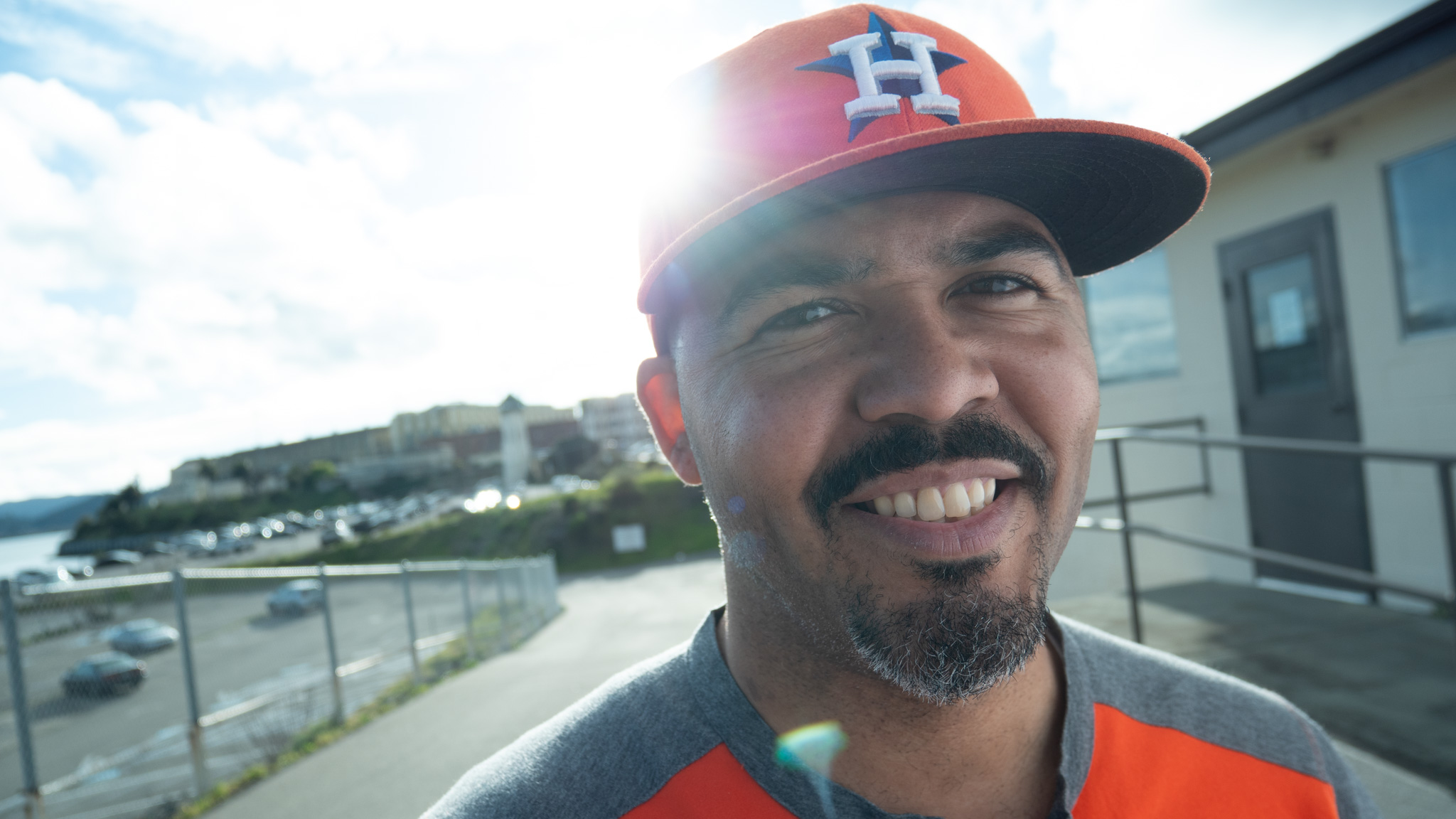
Swain understands the broken background many inmates come from. Once after a game week, he was shooting free throws with one of his inmate opponents. Over the next months, their relationship grew. The man committed to pray for Swain’s family as they dealt with a medical crisis, and after several weeks, grew comfortable enough to share his own burdens. He revealed how he grew up in a family ravaged by rape, drug abuse, depression and violence. Full of rage, at 19 years old, he killed another man.
“That is a story that really sits on me because it is not very different than my story or any of the stories of the people I grew up with,” Swain said. “When I go in there, I see all of the brokenness. I see me,” he said.
Swain graduated from Gateway in May 2015, the day before marrying his wife Melieka. His ministry at San Quentin isn’t limited to athletics — he also teaches ADVANCE classes for students seeking certificates and diplomas for ministry preparation. Involved as a player since 2013, he began to manage his own basketball team in the summer of 2018. He also previously served on the board of a sports ministry in Atlanta and volunteered with Fellowship of Christian Athletes for a time.
“Now that I have seminary training, I see more of the value of sports ministry and how to utilize and leverage it as a witnessing tool,” Swain said.
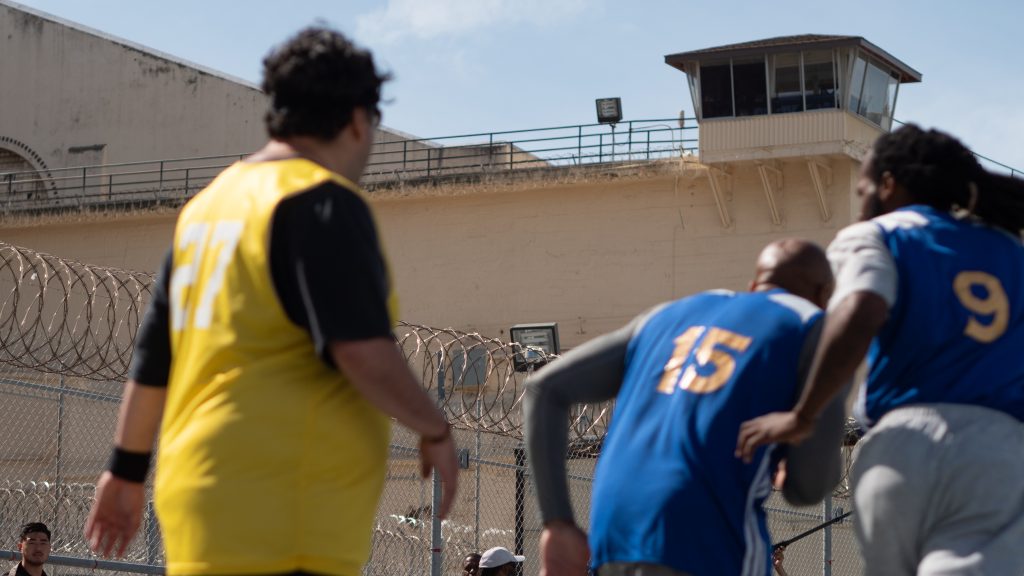
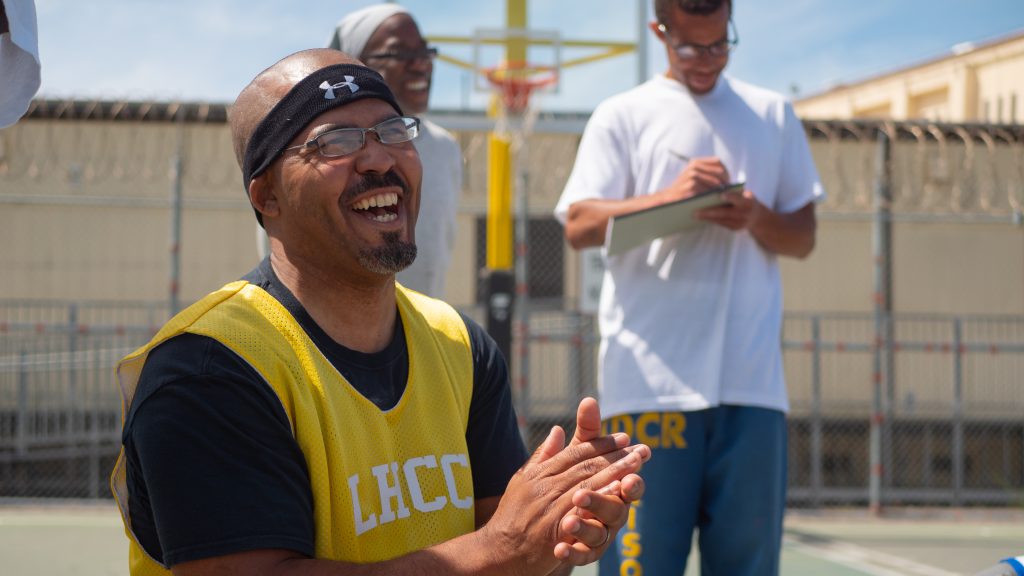
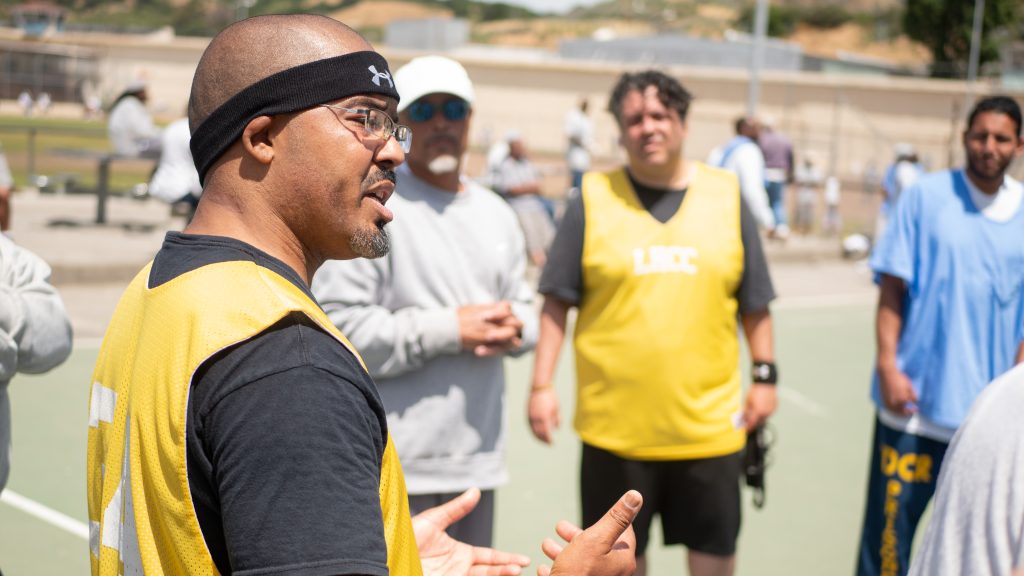
Swain competed in football, basketball, and track in high school. He played football at Sam Houston State University and eventually picked up rugby after his football eligibility ended. After graduating, he
played rugby at the club level, competing with players who were on the national rugby team.
“I come from a broken family. I come from an environment that many of these men come from. My wife does too, and we brought that into our marriage.” Because of their experience, Swain and his wife have made their relationship a high priority. He calls his family his first ministry, and he works hard to lead their two children in Christ. “I’m learning by leading at San Quentin to transition that to my own home, to learn how to lead my own family.”
As Swain learns to better love his family, he learns how to teach and practice love with the inmates. Part of what he teaches the men is how to show grace and seek restoration with a fellow inmate after a conflict — how to see the other prisoners as neighbors.
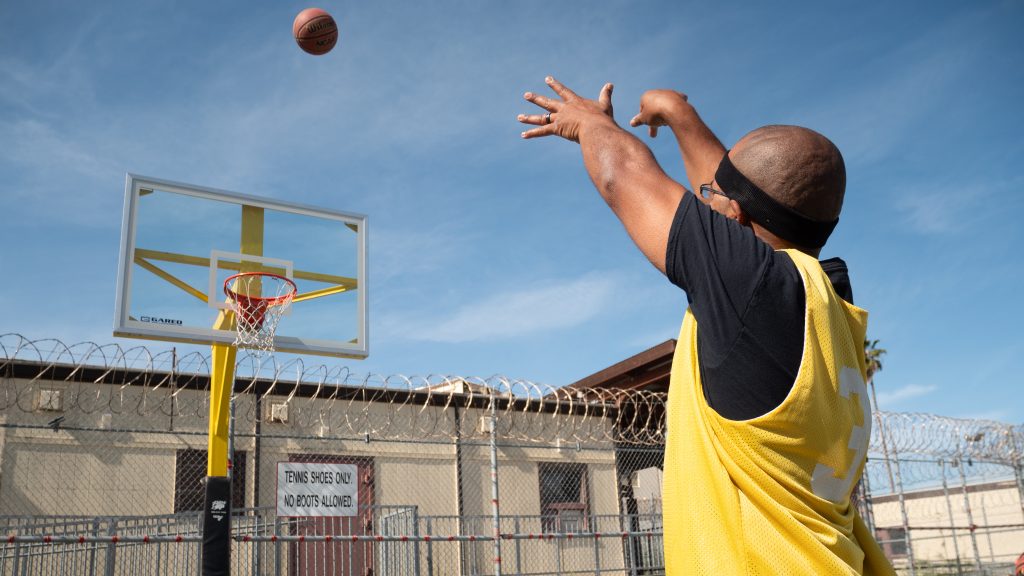
“Most of these men in jail have been dehumanized,” Swain said. The sports ministry fights this trend by showing they are created in the image of God and they are worth saving; they are human. “I think that is what these types of ministry really do, because there are people coming in just loving on them and helping to build up their self-worth,” he said.
The ministry is oriented to supporting and empowering the local church inside San Quentin’s walls to reach the lost. Swain sees it functioning similarly to a seminary, especially in conjunction with the ADVANCE classes taught there.
“We’re just coming to fellowship with them and to encourage believers in [the prison] as they minister to the people in the yard,” he said.
Each of the inmates’ basketball teams has two to four believers on it, and those men work to integrate both recently incarcerated and long-term prisoners into the sports ministry. During halftime in basketball
games, Swain asks his teammates to preach, and believers from the inside and outside will share testimonies and participate in a prayer time. The sports aspect of the ministry is intended to create opportunities to share the Gospel and to connect new believers to other Christians in the prison he said.
One of Swain’s players, Kanoa Kekai, was preaching during halftime one week when an inmate cried out, “I wish he was my pastor!” Recognizing the opportunity to further engage with this man, Swain sent Kekai to talk with him instead of playing the second half. After the game, Swain and Kekai continued to speak to him, and they connected him to believers in the prison.
“Our job is to come in and to assist the church that is in there. They have a church, and that church is doing amazing things in the Spirit of the Lord,” Swain said.
“Everybody finds God in prison, but do they take Him with them when they go out? That is our hope.”
Cornell Swain
In a chance encounter months later, Swain met the man’s father on a visit to see his son. A pastor himself, and he thanked Swain and asked him to keep praying for his son.
Like any healthy growing church, Swain wants to help the congregation in San Quentin to be missional, to send people back out into the communities they came from when they are released.
“Everybody finds God in prison, but do they take Him with them when they go out? That is our hope.” Swain said.
Harry “ATL” Smith was part of the basketball ministry in San Quentin. Before his imprisonment in 2011, he played college ball at San Francisco State. He was instrumental in the prison’s recent wins over the Golden State Warriors. After his release, he had the opportunity to tryout for the Golden State Warriors G League team in Santa Cruz. His story got national attention and an interview with San Quentin News where he said, “All praise is due to God.”
“It’s bigger than basketball. This program has really been my family. When I get out, I plan to continue repping the Warriors and Jesus Christ,” he said.
Harry is not the only one to follow God after his release. A man who goes by “Fox” is working for Tesla in Palo Alto and is a leader in his church. In Sacramento, a man who goes by “Detroit” leads GED prep courses, helping people work through the process and then continuing to mentor them as they move on to the next stage of their lives.
“Our hope is that we can send as many men home as possible, not just reformed with behavior modification, but as new creations in Christ Jesus who are learning to love God with their everything and to love their neighbors as themselves,” Swain said.
The believers in San Quentin get some practice sharing their faith with outsiders before they are released. Some of the players on Swain’s basketball team are nominal Christians or aren’t Christian at all.
“We used to be just pastors going in and missionaries going in,” he said. “We now are grafting in people who may not be believers, and we bring them in to do a 360-experience. Now they can come to prison and see prisoners minister to them as we are ministering to the prisoners.”
Swain has observed the effect this has had on some of his players as they are exposed to both the prison environment and the church inside it.
“I’ve seen their eyes open up,” Swain said. “I’ve seen them have more of a zeal to be obedient to the word and not just to be a ‘pew-potato.’”
Swain is developing two new ministries. He is leading a new football ministry in San Quentin that just finished its first season, though it was cut short by the wildfires in Northern California. He hopes to organize four teams that can commit to once-a-month games each next season.
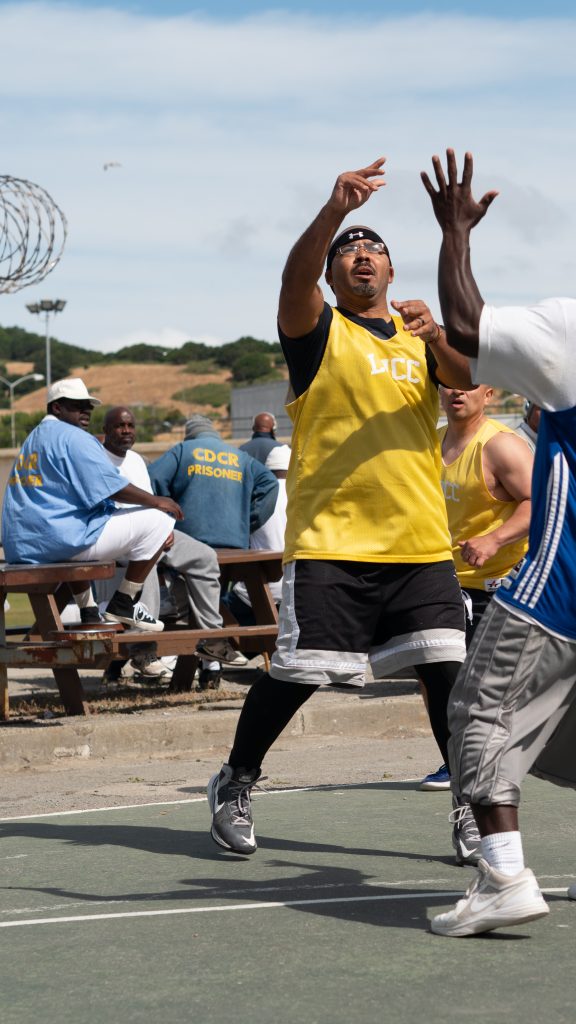
Additionally, Swain and his wife are developing a new ministry called the Kingdom.
“We’re looking to duplicate what I’m doing in the prison and what I’ve learned over the years in sports ministry and seminary, in our county,” Swain said.
The idea is very similar: Use sports as a means to share the Gospel. They will help churches start recreational sports leagues for evangelistic purposes and develop curriculum to train people to take the Gospel further into the community. More than anything else, Swain and his wife see themselves as missionaries rather than church planters.
“What I’m about is going,” he said. “The hope with these ministries is to train people up and send them out.”
Special thanks to Caleb Stallings for providing these photos.

Hope in Suffering
Gateway student Matt Bodden is an evangelist who is ready to answer the question of suffering with the gospel.

Seeing the Unseen
CSBC Women’s Ministry Director Cathie Smith shares how the church can serve the marginalized in its community.

A Love for Scripture
Damaris Scrima, MTS student, shares the importance of cultivating a love for God’s word.



